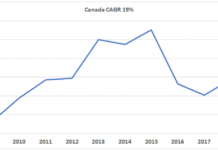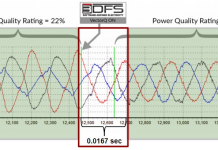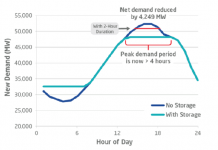Research Analyst Bucks Naysayers
By Joyce Pellino Crane
Jay M. Meier may be out on a lonely limb, but the senior research analyst at Feltl and Company is unwavering in his enthusiasm for Digi International, Inc. (Nasdaq:DGII)
Meier is recommending Digi as a buy, insisting that the company is undervalued given its potential for growth in the smart grid sector.
“The company is woefully undervalued,” he said, “and it’s probably going to start growing in the second half of 2010 as evidenced by all the smart grid technology it has…”
But other research analysts are not so sure. I spoke with two who questioned whether the company’s six acquisitions since 2005 are panning out. One said that their products are tied to corporate enterprise spending, which has plummeted in the current economy. Smart grid purchases, he noted, can be put off until the economy improves because the nation’s power grid is functioning. The other noted that Digi has a catalog of legacy networking products, with none rising to the top as a big seller. Neither analyst agreed to speak on the record. The first said he stopped analyzing the company in December because it no longer fit with his coverage universe. The second said he was not well-versed enough on the company to speak about it publicly.
Meier acknowledged that his stance has spurred opposition from some industry observers.
“I understand my position is unique,” said Meier, “but I don’t believe that the bears have thought it all the way through. The smart grid didn’t exist when Digi started buying these connectivity companies.”
Smart grid is a term used to describe the pending transformation of the nation’s current power grid as utility companies, homeowners and businesses invest in new gadgets, transmission lines, connectivity and wireless devices that will upgrade how electricity reaches consumers and how it is consumed. The build-out is waiting for the smart grid market to gather steam, government cash to infuse the economy, and consumers to grasp the benefits.
Digi International, a telecommunications sector company, has been moving into the smart grid space by supplying components to manufacturers of smart grid connectivity devices and solutions. Companies that buy Digi’s products integrate them into completed solution systems, much like Dell, Inc., (Nasdaq:DELL) does when it builds a laptop. In addition, Digi sells industrial automation equipment, converter interfaces for utility company networks, and legacy equipment to healthcare facilities, and retail stores.
Naysayers argue that Digi has grown artificially from acquisitions.
“It’s true Digi has not grown organically in a meaningful way over the last few years,” said Meier. “However, they have acquired meaningful Intellectual Property around new transmission modalities, that makes Digi uniquely situated to provide the core transmission technology for the smart grid and other asset management verticals.”
Its acquisition of MaxStream, Inc., for $16.1 million in July 2006 blazed its entry into the wireless device networking market. The wireless solutions are focused on automated utility meter reading, oil and gas monitoring, remote control monitoring of commercial heating and air conditioning systems, fleet management, industrial controls, wireless sensors, and electronic signals. These products, according to Meier, are the foundation for future growth.
Meier noted that the company has publicly announced partnerships with Elster Metering, a manufacturer of smart grid meters, Itron, Inc., (Nasdaq:ITRI) a smart meter provider to global energy and water industries, Silver Spring Networks, a hardware and software provider of smart grid solutions, and Comverge, Inc., (Nasdaq:COMV), a provider of smart grid solutions. Digi will supply them with its wireless sensors and gateway technology as components.
In 2008, Comverge announced a partnership with Digi and Texas Utilities to offer smart thermostats to 2.1 million electricity customers. The gadgets will use the Zigbee communication standard chosen by the US Department of Energy for home area networks. Digi has a family of ZigBee products, pioneered by MaxStream, including gateways for home thermostats capable of connecting with utility providers over broadband or cellular technology. The ZigBee components will collect and transmit data to the utility company.
Meier touts Digi’s versatility, noting that it can supply all of the potential transmission modalites—satellite, ZigBee, celluar, blut Tooth, broadband, 802, and Wi-Fi in pre-certified modules.
“Digi is truly the only one-stop shop on the planet,” he said.
Coming next: An overview of Digi International’s financials (link broken until publication).
Joyce Pellino Crane writes at wordtrope.com/blog. She is a Boston Globe correspondent and a business technology analyst for Trender Research. Follow her on Twitter: Wordtrope. She can be reached at joyce pellino crane at gmail dot com (no spaces).








